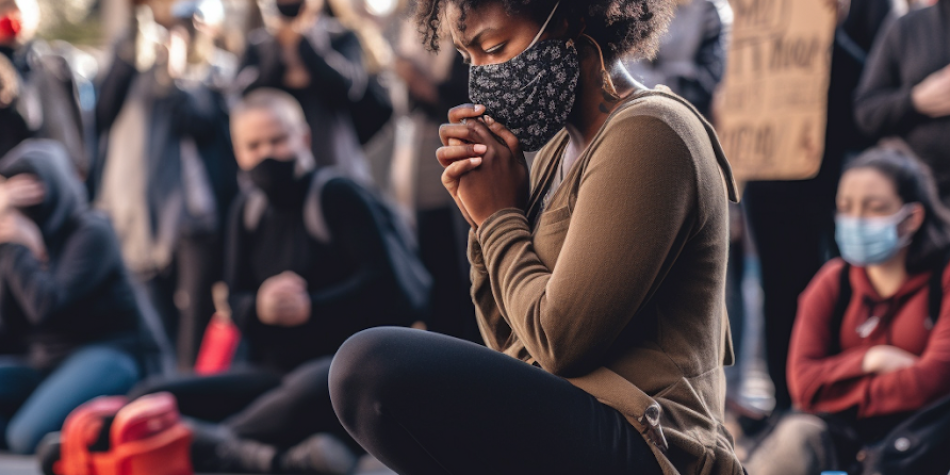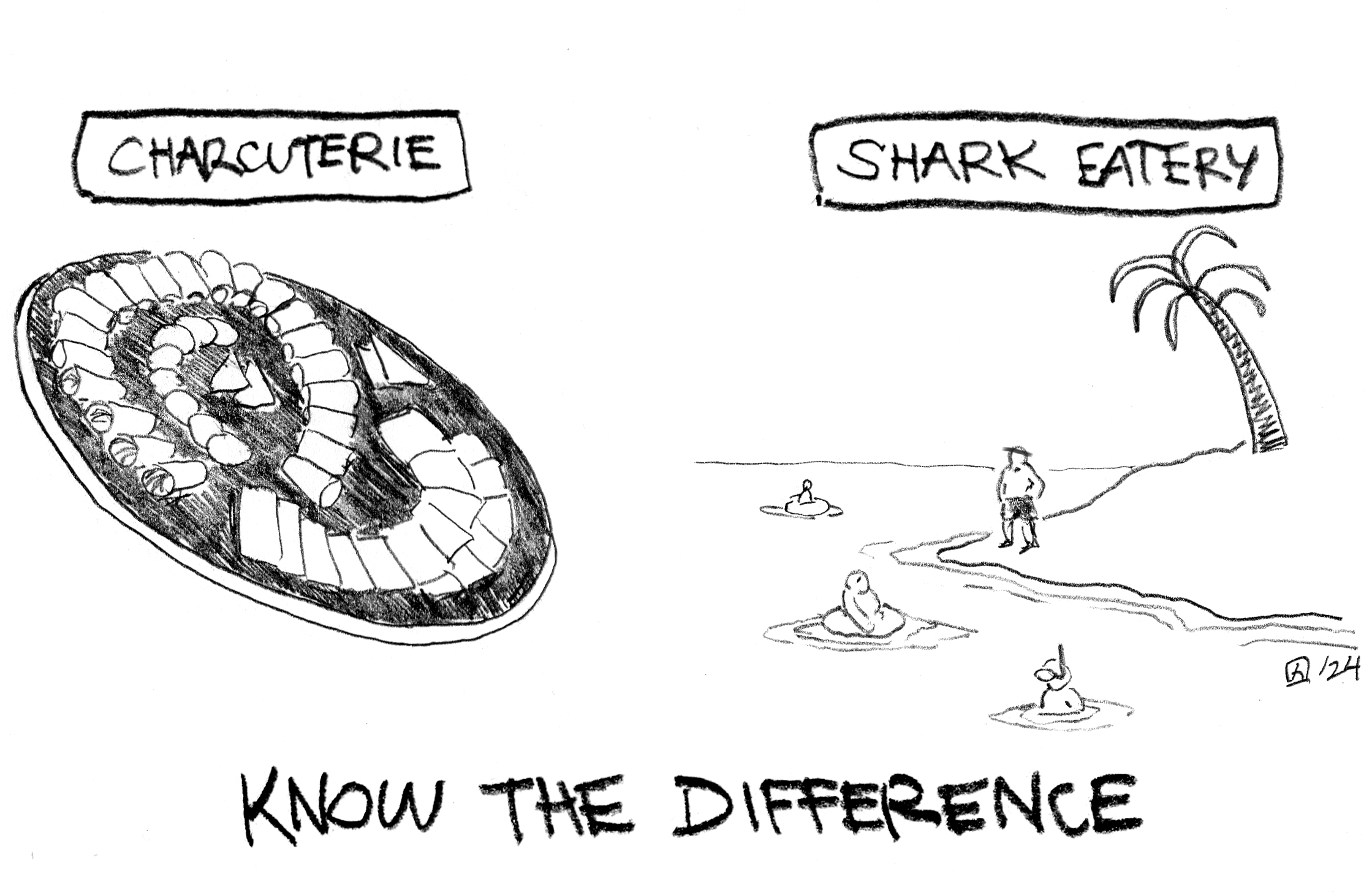An alien anthropologist arriving in the United States today, to paraphrase one respected scholar, would surely recognize more than Christianity and other traditional faiths competing for the adoration and trust of people today. Free from our own biases of what a “religion” looks like, they may well identify a new dogma capturing the devotion of Americans everywhere.
This series explores this other religion, which my friend Ralph Hancock calls “compassionate liberation,” and its meaningful contrasts with Christian faith. The previous essay examines competing ideas about what fundamentally ails the world. Closely connected with any particular problem definition is a specific solution definition that follows from it. In this essay, we go deeper into exploring what solutions arise from the competing views of the problem considered previously.
A call to internal renovation
For Christians, who start with a commitment toward sin as the basic and fundamental unit of wrong-doing —if that’s your underlying and overarching problem definition—what does that mean when it comes to societal answers and solutions?
In Luke’s gospel account, Christ teaches his apostles that to overcome sin, we must repent. And the Lord adds in modern revelation that we should “say nothing but repentance” in our message to a darkening world.
That darkening world, of course, does not see this as a welcome message—instead, regarding repentance as guilt-inducing, shaming—aka, mostly something that makes us feel bad. Such a focus represents the antithesis of the therapeutic “you are perfect just the way you are” validation so many people crave.
But it’s precisely this popular portrayal of repentance that prophets have pushed back on—attesting to the joy that daily redemption can bring us all. This inner soul-stretching practice of repentance requires us all to draw on strength from others around us (and God above) to turn away from the wrongful object of their attention and passion—and simultaneously turn back to something better. Repenting is quintessentially and famously challenging.
Despite these challenges, once you are convinced that sin is what is wrong with the world, it makes sense that you’d go to work righting that wrong and seeking to improve yourself—while also helping others see the reality of sin and their own urgent need to repent.
A demand for external revision
By comparison, if you start with a commitment towards inequity as the basic and fundamental unit of wrongdoing—if that’s your underlying and overarching problem definition—then where is your head when it comes to societal answers and solutions?
The most popular proposed answers to inequity simply do not follow the same internal, soul-stretching pathway just described. However much some personal adjustments may be encouraged (“be the change you wish to see … be courageous … speak up … love yourself more”), the ultimate solution to the worldwide imbalance of power doesn’t lie in ourselves … it lies in other people who are actively or unconsciously involved in the perpetuation of imbalanced and unfair power relations.
This entails an entirely different kind of challenge. And yet, once you are convinced that inequity is what is wrong with the world, it only makes sense why you’d go to work to right those wrongs and correct these inequities. You would also do everything you can to help people see the reality of these inequities and the crucial urgency of remedying them.
That’s precisely what I see so many friends doing these days—turning away from the great commission of building a redemptive, repentance-inducing, covenant-sparking faith to a very different kind of commission: fighting injustice, confronting power structures, and relentlessly searching oneself (and those around them) for any iota of unfairness.
In “Woke Racism: How a New Religion Has Betrayed Black America,” John McWhorter unfolds this dogma in great detail, “Battling power relations and their discriminatory effects must be the central focus of all human endeavor, be it intellectual, moral, civic, or artistic. Those who resist this focus, or even evidence insufficient adherence to it, must be sharply condemned, deprived of influence, and ostracized.”
Victoria Turner, “Young Woke and Christian,” spoke of her focus on financial inequality and capitalism in an interview with Helen Lewis for the BBC audio-documentary The Church of Social Justice, explaining, “I see that as what I’m here to fight against. Whether your God looks exactly like my God, I don’t know the answer to those questions. But I do know what the answers are to stop people suffering—and make the world a more equitable place, which I think is what the gospel is calling us to do.”
Are these kinds of change even possible?
For many Christians, the kind of sweeping, utopian thinking that undergirds this pursuit of equality feels impossible because of their wary eye on the potential towards evil in human nature. To them, attempting to fix the underlying structure of human society through largely secular mechanisms feels naive at best and ignorant, foolhardy, and even dangerous at worst.
Similarly, in a society centrally focused on external structural and policy shifts as the “real change” we must seek, attention to these kinds of internal shifts of heart and mind can seem irrelevant and quaint at best. In many cases, people give up on this being possible at all.
“Have you ever known anyone who experienced a fundamental shift in their heart and mind,” I asked a neighbor recently. “Nope,” she said.
Alma had more confidence than my neighbor, asking members of the Church anciently, “Have ye spiritually been born of God? Have ye received his image in your countenances? Have ye experienced this mighty change in your hearts?” He continued, “If ye have experienced a change of heart, and if ye have felt to sing the song of redeeming love, I would ask, can ye feel so now?”
To those who might question whether this kind of deeper change is possible, President David McKay wrote, “Human nature can be changed, here and now,” adding, “No man who has felt in him the Spirit of Christ even for half a minute can deny this truth.”
“If you surrender it to Christ,” President McKay continued, “you do change human nature, your own human nature.” He added, “Human nature has been changed in the past. Human nature must be changed on an enormous scale in the future unless the world is to be drowned in its own blood. And only Christ can change it.”
Latter-day Saints’ more optimistic vision of human nature encourages us to celebrate the internal changes that are possible while anticipating what those mighty changes could mean when multiplied across many people. For us, larger social change (à la Zion building) is rooted in these individual and family changes.
Synergies or syncretism?
Once again, these approaches certainly overlap. Since something like racism is seen primarily as a sin, it suggests a different solution than if we see inequality as the primary issue.
While there are undoubtedly many ways to synergize and reconcile these approaches, in my view, these competing solution definitions remain jealous masters. They do not always play nice together.
That’s because a heart-stretching, soul-searching focus on repentance is fundamentally different from an institution-challenging focused on correcting inequities and power imbalances. This is why, among other things, if you are emphatic in pursuing one of these systems of thought, you will not likely be fond of labels involved in advocating the other.
Jesus was right: no man can serve two masters—and the contrast, in this case, is striking. President Ezra Taft Benson wrote in 1989:
The Lord works from the inside out. The world works from the outside in. The world would take people out of the slums. Christ takes the slums out of people, and then they take themselves out of the slums. The world would mold men by changing their environment. Christ changes men, who then change their environment. The world would shape human behavior, but Christ can change human nature.
This highlights the differences between a primary focus on personal (me-first) sacrificial changes versus collective (you-first) structural changes.
Deeper origins for these differences
Where do these major ideological differences come from, by the way? I’m intrigued by the way they appear to arise from deeper disagreements about the nature and reality of God.
For instance, to those who believe in a living God active in our lives, it makes sense that something outside of ourselves is crucial to relate with, listen to, and do our best to follow. But what would happen today if you stopped believing this (either by disbelieving in the existence of God entirely—or in a God who has anything definitive to say about your life, aside from “you’re so great”)?
It’s not hard to imagine that if you stopped believing in this God, you would naturally, inevitably begin to center life around something else. And when you strip away authority and loyalty to something higher and greater and deeper than your world, that’s what you are left with, your own internal experience: your own thoughts and feelings. That very quickly may become the newfound locus of your world—and your center of gravity moving forward.
That’s my best explanation for why so many, according to respected psychological research, prioritize care and fairness above all else. It seems as if they’ve left behind everything else of value. Life then quickly boils down to two things: make people feel loved and make things fair.
For people with this worldview, that’s the solution to what ails us—a solution that revolves around ensuring everyone has the most personal validation and equal access to resources possible. However appealing that may be to modern sensibilities, it’s a vision that feels more constricted and narrow to other believers—seen as reflecting more limited “moral foundations,” as Dr. Jon Haidt has said.
Competing proselytizing campaigns
When we feel like we’ve found the solution that can fix our underlying problems, there is a natural impetus to share with others. That’s why Jesus encouraged his own followers to share the message of repentance and baptism with “all nations.”
For adherents of this new religion, however, this impulse is far more complicated. Victoria Turner (“Young Woke and Christian”) also shared in her interview, “I do struggle with the idea of me converting someone else. My best friend is Muslim, but I wouldn’t want to think about how to convert him to Christianity. I think that’s like violence, really.”
While the idea of religious conversion may be off-putting to these adherents (who don’t frame their own religious beliefs as religious), proselyting efforts get smuggled in inevitably—especially in schools.
In recent years, high schools, middle schools, and even elementary schools have been new sites for the ideological battles about this insurgent new religion. As McWhorter states, “The idea is to infiltrate public and especially private education. I’m seeing all over the country, private schools that are going full out for this centering the entire curriculum on raging against power differentials.”
McWhorter goes on to call for resisting the “simplistic idea that battling power differentials must be our dominant endeavor as opposed to one of many” while adding, “I have no problem with kids being taught about how racism works, about the fact that there was slavery, that there was Jim Crow, that’s fine. That’s different from the sorts of things we’re seeing happen in some school curricula.” Which religion will you bring to the world?
Thus we move forward, proselytizing and proclaiming our disparate solutions. What is the essential solution to what ails us? “Say nothing but repentance” some are enjoined, while others are encouraged to do everything to bring about “systemic” and “structural” change.
Which will it be for you? And which religion will you bring to the world?
While I certainly can’t begrudge others the right to declare their own faith—and would defend that right vigorously—let’s at least acknowledge that this is what’s happening. And along the way, let’s talk about how this popular proselytizing is being given preferential treatment in the public square, with privileged access to the kinds of buy-in and resources that other faiths do not.
What’s your fight?
You might resist elements of my analysis above. But I would press you, again, to ask yourself: What are the most important solutions to promote in our fragmenting culture today? On one hand, believers speak of the quintessential fight as overcoming pride, lust, hatred, and other betrayals of God’s will. On the other hand, modern adherents of the new religion speak of another fight as central. Rather than losing oneself on the road to relinquishing natural impulses, this is a call to find oneself in many ways. As one woman attested, “I fight every single day for people who are oppressed by organized religion in any way to claim their authentic identity, to be who they are, and to know that they are seen, loved, and way more than tolerated. … They deserve to be celebrated.”
Anything that stands in the way of such total acceptance and inclusion is to be fought. Consistently, John McWhorter calls the following statement the “needlepoint homily par excellence” of Third Wave Antiracism and other social justice ideologies: “Battling power relations and their discriminatory effects must be the central focus of all human endeavor, be it intellectual, moral, civic or artistic. Those who resist this focus, or even evidence insufficient adherence to it, must be sharply condemned, deprived of influence, and ostracized.”
Why such ferocity? Because of the consequences for the marginalized, who have become a kind of “sacred object” to many on the left. From this vantage point, there is one clear way to encourage their liberation—and it’s certainly not to encourage ongoing repentance and a sacred commitment called baptism. In the next article in the series, we will look further at how these competing religions treat those who violate their tenets.
















